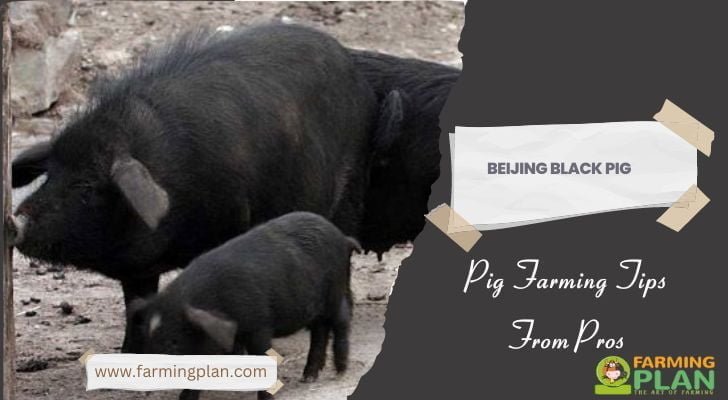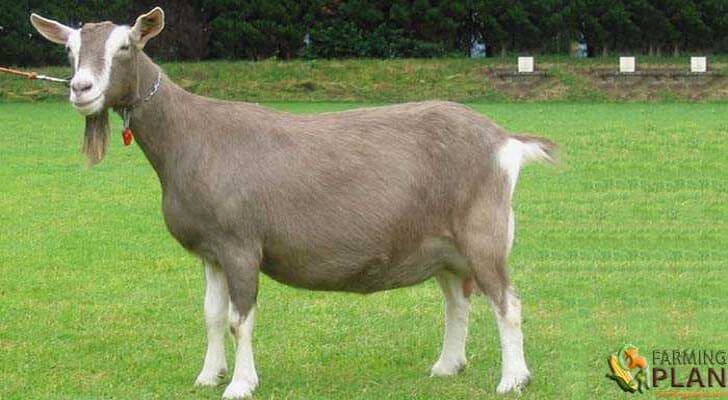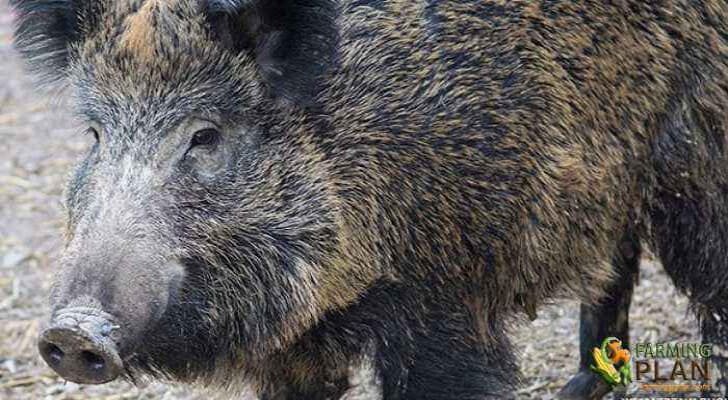Raising Beijing Black pigs is challenging, but with the help of experienced professionals and a sound workflow plan, you can be sure you are successfully raising healthy pigs that are ideal for your needs. Beijing Black Pigs, also known as the Peking Blacks because they were originally produced in Beijing China in 1962, make great livestock as they have strong genetics and produce amazing yields due to their monumental size when compared to other breeds. These animals require an extensive knowledge of pig farming procedures so careful planning should take place before introducing this breed into your farm or pens. At the same time, there are numerous advantages to having them on your property ranging from meat production to even companionship! In this blog post, we will focus on the tips provided by experts on how best to handle these unique creatures using standard industry practices while still adhering to individual housing regulations.

History & Origin
The Beijing Black Pig is a breed of domestic pig that has its roots in China. It was first created in 1962 by cross-breeding different species and is recognizable for its mostly black color with white markings. It is particularly well-suited for colder climates due to its thick fur which protects it from the elements. As a result, it has become popular among farmers in Northern China, where the temperatures can dip extremely low during winter months. The Beijing Black Pig continues to have a place in Chinese history and holds a special symbolism as an important agricultural symbol and an emblem of successful farming efforts.
Characteristics
While it may look like any other pig, the Beijing Black Pig is a unique breed that originated in 1962 with a cross-breeding of two different types of pigs. Its unique black and white coloration has earned it the name “Peking Black” and makes it easily recognizable amongst many of the other breeds. These pigs have short snouts, and reasonably long legs, and can weigh up to 450 pounds when fully grown. Furthermore, they are considered gentle animals, making them particularly desirable for those who wish to raise pigs as pets or for agricultural purposes such as meat production.
Feed
While the Beijing Black pig is known for its distinct black and white markings, it is just as valued for its dietary needs. These pigs have a unique diet that includes both feed grains and vegetables, making them highly desirable to farmers. This balanced combination of grains and vegetables offers the best nutrition possible for the breed to remain healthy, strong, and robust over time. Plus, the breed’s ability to consume more feed than other pigs enhances their overall productivity for potential owners. This convenient diet makes them an excellent choice for any pig farmer looking for a hardy breed with good growth potential.
Usage
The Beijing Black Pig is known for its utility, making it a popular choice amongst farmers. This hardy breed of domestic pig is versatile and can be used for meat production, interbred to create mixed breeds with increased productivity in the field, and even used as a source of brush material. They are well adapted to both warm and cold climates, giving them the ability to thrive throughout the year in a variety of different regions. These pigs are also particularly valued in China as an essential part of agricultural life due to their unique qualities that make them ideal for various purposes.
Special Feature
The Beijing Black Pig, also known as the Peking Black, has many special features that set it apart from other breeds. This domestic Chinese pig is known for not only its striking black coat with white markings but also for its hardy nature and prolificacy. It was first created in 1962 by cross-breeding two different types of pigs and since then it has become a symbol of Chinese culture. From its beautiful appearance to its superior traits, the Beijing Black Pig is an incredible feat of livestock breeding that can be appreciated by anyone.
Breeding
Since its introduction in 1962, the Beijing Black Pig has seen great success as a breed due to its desirable traits, such as white color markings and a sturdy constitution. To ensure high-quality reads and prevent genetic issues, breeders must be aware of not only best practices but also the reasoning behind their breeding decisions. By fostering an understanding of how different traits interact and complement each other, breeders will be well-equipped to maintain and improve upon the qualities of the Beijing Black Pig.
Housing Requirements for the Beijing Black Pig
Housing requirements are extremely important when it comes to the Beijing Black Pigs. This domestic breed, native to China and created in 1962 through cross-breeding, needs a dedicated space to allow ample activity and growth. They need shelter from extreme weather such as heavy rain and blazing sunlight, with enough room for them to spread out and root around. Bedding is also essential for comfort, with layers of straw, hay, or wood shavings for them to burrow into. The area must be fully enclosed but provide enough air circulation within, usually achieved by mesh netting or galvanized metal siding. Knowing their living conditions are met means they can thrive in good health and give lots of delicious pork!
Benefits of Keeping the Breed
Raising a herd of Beijing Black Pigs has many benefits that many other breeds cannot offer. These pigs are known for their heavy backs, large jaws, and robust physical structure, which makes them ideal for fatty meat when compared to other common breeds, such as the Hampshire pig. They also have strong legs for better endurance when foraging or being worked in a plowed field. Furthermore, these pigs have some white markings on their otherwise black coats, which helps to distinguish each individual within the herd. Although they are relatively rare outside of China, any breeder looking to experience something special in their swine herd will find that Beijing Black Pigs offer a great deal of advantages over other breeds.
Potential Health Concerns
When it comes to the potential health concerns of the Beijing Black Pig, preventative measures are key in ensuring their wellbeing. This breed of pig, also known as Peking Black Pigs, is known for its black coat and white markings. As omnivores, they can be prone to diseases such as parasitic infections, digestive illnesses, and skin problems; however, proper healthcare and nutrition can help reduce the risk of these issues. Regular weight checks can determine if the pig is getting enough nutrition and exercise and potential health issues can be spotted early. Additionally, making sure the pig’s environment remains clean is essential in keeping them healthy and safe from parasites or bacteria that may be present in unclean areas. Taking these preventative steps is key to ensuring that your Beijing Black Pig stays happy and healthy for years to come!
FAQ
Where did the Beijing black pig originate?
The Beijing black pig is a traditional Chinese breed that has been farmed in parts of Northern China since at least the 17th century. It is believed to have originated from wild boar (Sus scrofa) populations that were domesticated during the Neolithic period and selectively bred by Chinese farmers over many centuries to produce a hardy animal with flavorsome meat.
What is the largest pig breed in the world?
The largest pig breed in the world is called the Louisiana Red Wattle. This exceptionally large breed of swine can reach a maximum length of over 8 feet and a weight of up to 1,000 pounds! Its hulking bulk consists mainly of muscle tissue and back fat, giving it an impressive appearance that resembles a bovine more than traditional pigs.
What is the price of a Large Black pig?
The price of a large black pig varies depending on the breed, age, and condition of the pig. In general, you can expect to pay between $200 and $800 for a medium-sized black pig. That said, some breeds or individual pigs may sell for up to twice that amount.
Conclusion
The Beijing Black has been historically bred for its exceptional qualities. Possessing a black and white color pattern, combined with thick, tough hide and an affinity for cold climates makes them ideal for areas where large livestock are not typically raised due to extreme weather conditions. With their hardy constitution, the breed is adaptable to a variety of feeding regimes and can thrive in varied housing environments. If given proper housing, feed, and care, these animals make excellent homesteading pigs and are capable of providing multiple years of service while producing delicious-tasting pork products. Furthermore, the stock is surprisingly amenable to common pig diseases, which can be readily prevented or managed with sensible disease prevention measures aimed at early detection. The Beijing Black remains an exotic yet extremely useful animal in modern farming systems as demand for quality pork products continues to rise around the world today.


